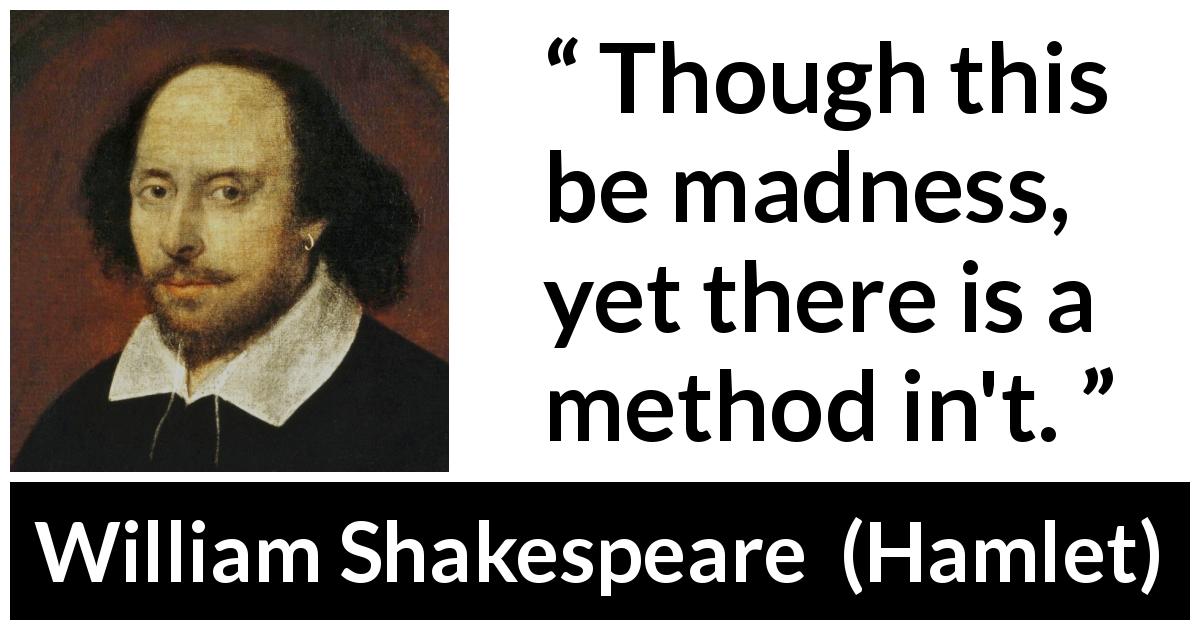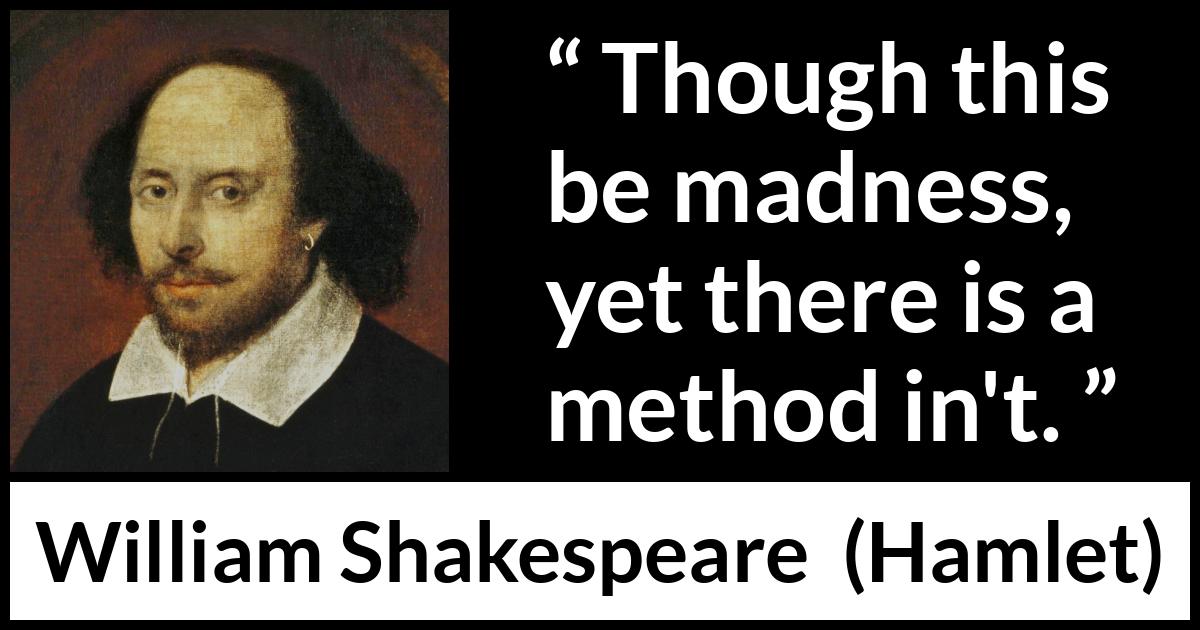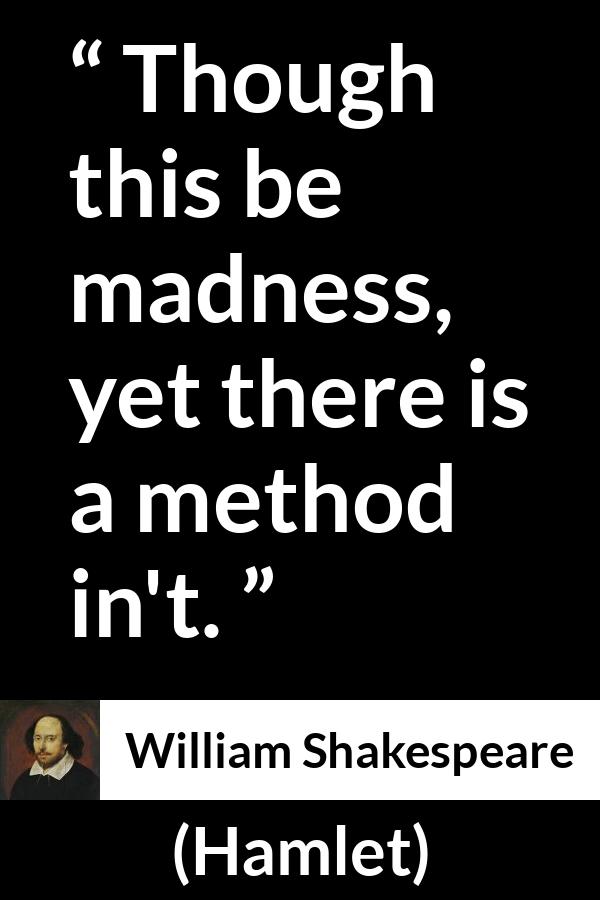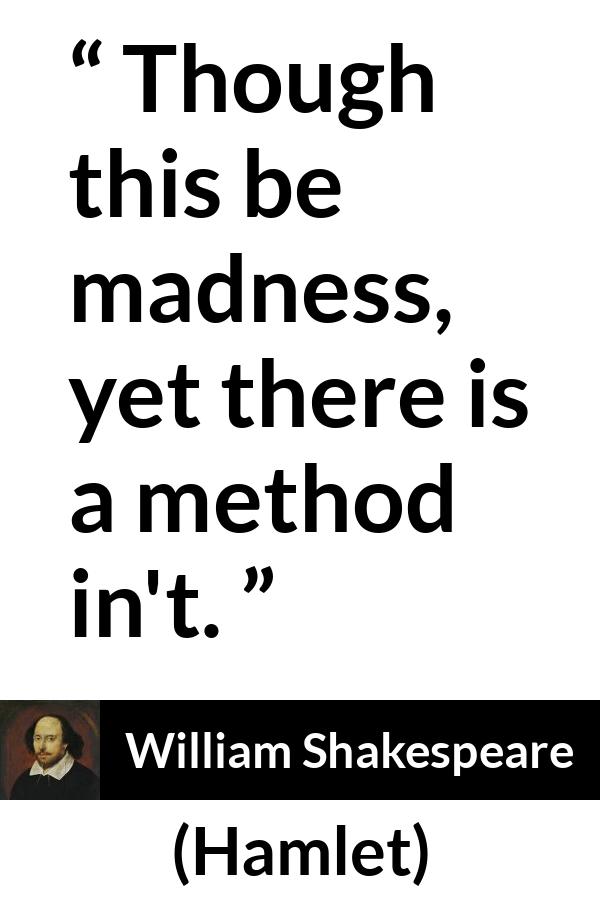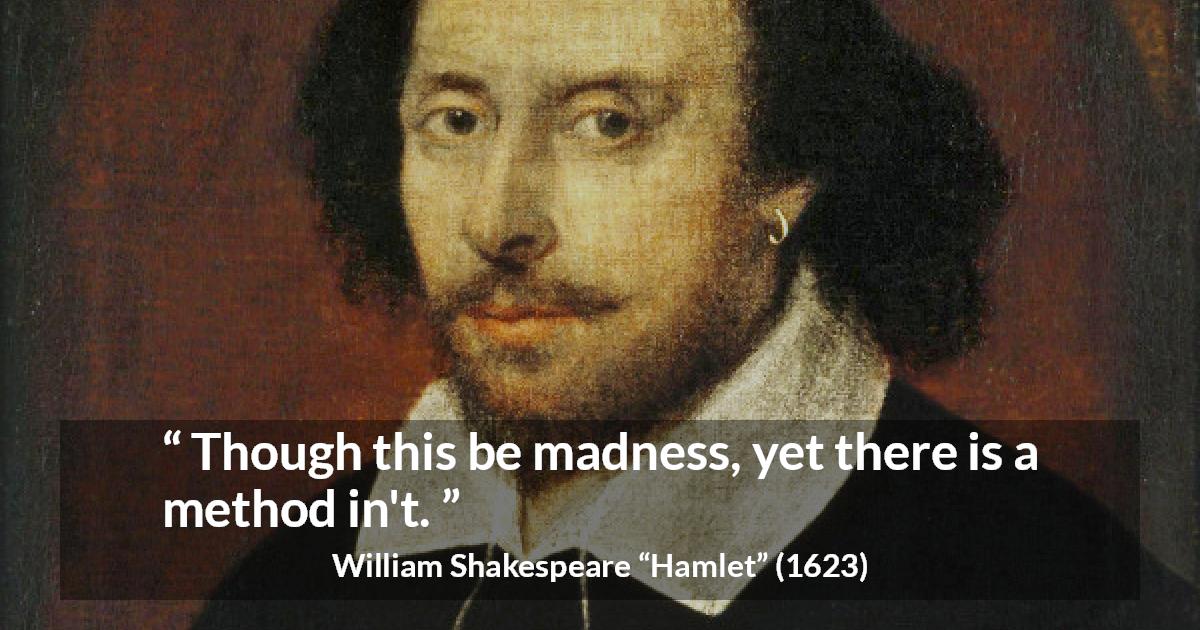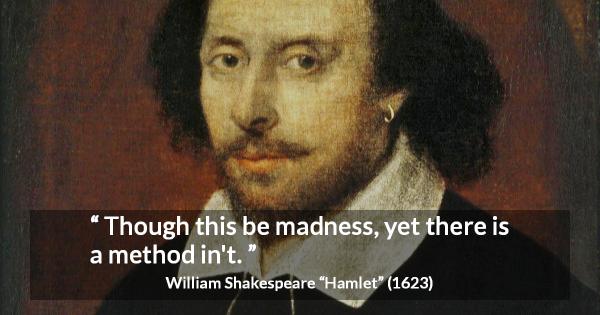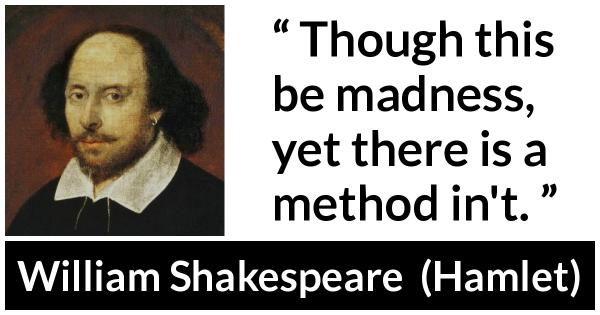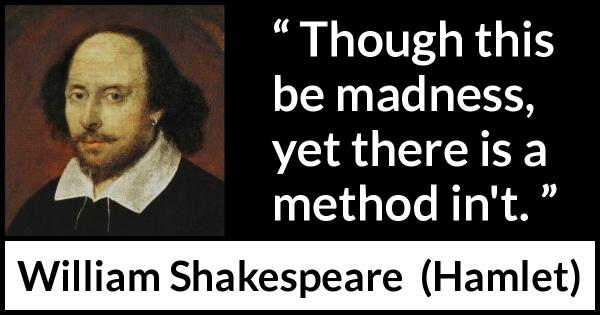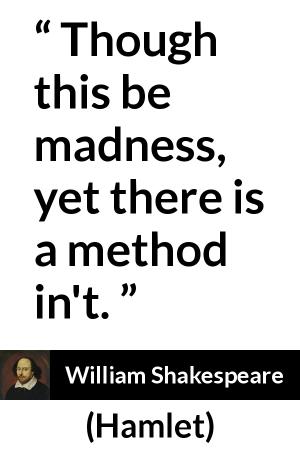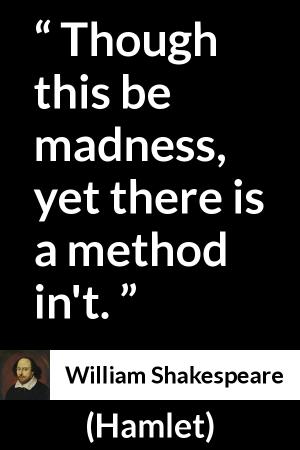“ Though this be madness, yet there is a method in't. ”
William Shakespeare, Hamlet (1623). copy citation
| Author | William Shakespeare |
|---|---|
| Source | Hamlet |
| Topic | madness method |
| Date | 1623 |
| Language | English |
| Reference | The Tragedy of Hamlet, Prince of Denmark, Act II, Scene 2 |
| Note | Written between 1599 and 1602 Polonius line |
| Weblink | http://www.gutenberg.org/files/1524/1524-h/1524-h.htm |
Context
“All which, sir, though I most powerfully and potently believe, yet I hold it not honesty to have it thus set down. For you yourself, sir, should be old as I am, if like a crab you could go backward.
Polonius. [Aside.] Though this be madness, yet there is a method in't.—
Will you walk out of the air, my lord? HAMLET. Into my grave? Polonius. Indeed, that is out o' the air. [Aside.] How pregnant sometimes his replies are! A happiness that often madness hits on, which reason and sanity could not so prosperously be delivered of.” source
Polonius. [Aside.] Though this be madness, yet there is a method in't.—
Will you walk out of the air, my lord? HAMLET. Into my grave? Polonius. Indeed, that is out o' the air. [Aside.] How pregnant sometimes his replies are! A happiness that often madness hits on, which reason and sanity could not so prosperously be delivered of.” source
Meaning and analysis
Kwize Master
These words are spoken by Lord Polonius aside from a conversation with Hamlet. Hamlet pretends to be crazy and deliberately makes odd answers to simple Polonius questions; for example Hamlet says he’s reading “words“ instead of giving the subject of his reading. Polonius remarks that these answers are unexpected, but make sense in some way, and finds Hamlet's behavior astonishing.
useful
useless
